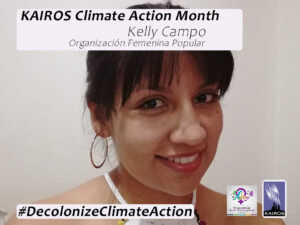Ecumenical Conference on Mining
Guest post by Simon Chambers, Communications Coordinator at the Primate’s World Relief and Devleopment Fund of the Anglican Church of Canada
In the past few days as I have been preparing to attend the Ecumenical Conference on Mining (or #Ecumining Conference as I think of it), I have been getting more excited at the idea of meeting people from around the world who work with different Church agencies to address mining issues.
I come to this conference as a relative newcomer to the world of mining issues. So please don’t expect a lot of technical knowledge in what I post. But what I will try to do is to share my thoughts and impressions of what I see and hear and learn here at the conference.
I suppose the best place to begin is with why are we here in the first place. And I think the best way to share that is with the Pre-Conference Statement that was released today. I will leave it to the experts to explain it for you:
Why We Are Gathering
Pre-Conference Statement
2011
Ecumenical Conference on Mining
We are gathering from May 1-3, 2011, in Toronto, Canada, to discuss the impact of Canadian mining operations on communities and the planet. We have chosen to gather in Canada as this country is home to 75% of the world’s mining and mineral exploration companies, and Canadian stock exchanges raise 40% of all mineral exploration capital worldwide. The Canadian mining industry seeks to be a leader in corporate social responsibility. We believe that mining activities in the Global South, as well as in Canada, raise critical ethical issues of social justice and respect for God’s Creation that are matters of concern for all people of faith the world over. We believe this for the following reasons:
· Poor communities in the Global South are disproportionately negatively affected by the mining operations of international corporations, whose home countries are the world’s most powerful economies.
· In Canada and other countries, Indigenous peoples’ rights have been systematically denied for generations, which leaves their communities unable to meet their basic needs while resource companies extract great profits from their lands and traditional territories.
· Resource extraction creates great wealth for foreign-owned mining companies but generally fails to alleviate poverty in nearby communities. Instead it often exacerbates social tensions, causes environmental damage and depletes drinking water supplies.
· Governments that are unable or unwilling to regulate mining activity in the public interest, either through lack of regulatory capacity or lack of political will, have left affected communities vulnerable to human rights abuses, environmental degradation and irresponsible practices.
· Those who protest against extractive operations are often silenced by repressive tactics of governments, can be slandered and criminalized, or become victims of violence themselves.
· In today’s globalized economy, the Earth’s natural resources are seen as commodities to be extracted and sold by private interests in the goal of profit maximization, with little regard for meeting basic human needs and living in balance with the rest of Creation.
Therefore, we are gathering in Toronto in May 2011 to increase the capacity of our churches and faith based organizations to speak about mining from a theological and ethical perspective, informed by first hand testimonies of communities impacted by resource extraction.
We gather to stand in solidarity with peoples everywhere who are pursuing sustainable community development and defending their rights. We call on the Canadian mining industry to respect human rights, including the rights of workers and Indigenous peoples, and minimize the ecological impacts of their operations.
More specifically, we hope to:
1. Build alliances and solidarity between church leaders in the South and in the North;
2. Support and empower communities, individuals and workers affected by Canadian extractive sector companies;
3. Analyze the place of resource extraction in current economic and development models;
4. Identify areas of focus for future actions related to public policy; and
5. Put mining issues front and centre on the agenda of churches, including education opportunities and investment practices.
Conference Co-sponsored by:
Anglican Church of Canada
Canadian Catholic Organization for Development and Peace
Canadian Churches Forum for Global Ministries
Canadian Conference of Catholic Bishops
Canadian Religious Conference
Christian Reformed Church in North America
Evangelical Lutheran Church in Canada
KAIROS: Canadian Ecumenical Justice Initiative
Mennonite Central Committee Canada
Norwegian Church Aid
Primate’s World Relief and Development Fund
Presbyterian Church in Canada
Religious Society of Friends (Quakers)
United Church of Canada












